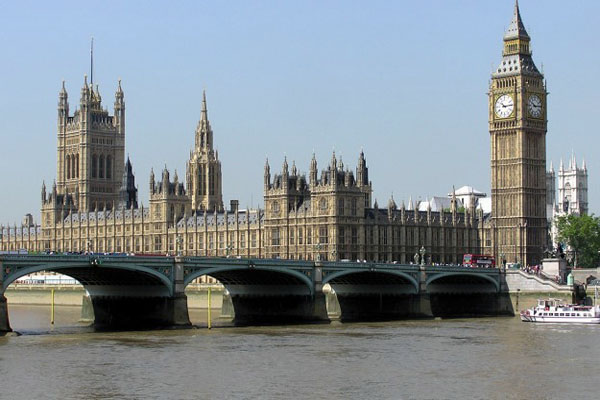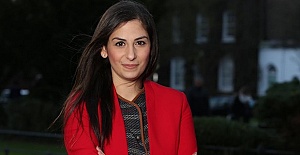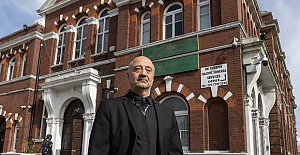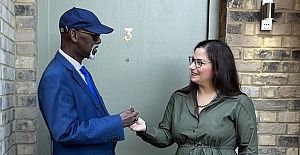A leading specialist in counter-terrorism has questioned the British government's approach to extremism, stating that attempts to further criminalize those taking part is not the answer - that they should be looking at the cause not the crime. In the wake of a video that appears to show a British citizen beheading an American journalist on behalf of the Islamic State (IS), the government is clamoring to clamp down on nationals travelling to Syria and Iraq to fight alongside militants, many politicians calling for tougher action against those that go and fight for the Islamic State. Home Secretary Theresa May wrote last week that she was preparing to bring in new laws that include an “anti-social behavior order” for extremists. Dr. Rizwaan Sabir, a specialist in counter-terrorism and political violence at the University of Bath in southwest England told the Anadolu Agency this week that the government is not doing enough to deal with the root causes.
“From those who have been convicted for terrorism, domestic grievances and foreign policy were the main contributing factor, hence it is domestic and foreign policy that must be re-examined rather than new laws being introduced,” he said.
According to the government, 500 British nationals have travelled to Syria to fight for the Islamic State - a "terror" outfit formerly known as the Islamic State of Iraq and the Levant that has seized swathes of Iraq and Syria.
The government, however, has dismissed British foreign policy in the region as a motivating factor in young Muslims travelling overseas to fight; in 2011 Prime Minister David Cameron claiming that the root of the problem was down to the "existence of an ideology, 'Islamist extremism'."
"Islam is a religion, observed peacefully and devoutly by over a billion people. Islamist extremism is a political ideology, supported by a minority," he said during a visit to the German city of Munich.
Jahan Mahmood, a counter-extremism expert and former government adviser, agrees that UK foreign policy is a factor, but adds that a major contribution comes from the moral crisis that many young male Muslims face in Britain today.
Some of these men have been involved in drugs, crime and lived promiscuous lives, all of which are considered sinful within Islam, he told AA. And then, while trying to deal with that guilt and seek forgiveness they are presented with "images of brutalized [Muslim] men, women and children" which "coupled with a desire to make a difference in the world and to get to heaven” leads them to "others" with more militant leanings.
“It’s a mixture of what they see as their duty [and] issues at home such as disempowerment and disillusionment, and... [problems] with their own family and wider society," he says. "And then of course, verses [from the Quran]... make them feel that they are doing the right thing, [verses that will] secure them a place in heaven, ultimately.”
Mahmood recounts a story of a young man he worked with, who became convinced that he should go abroad and take part in armed conflict.
“He read that as soon as the martyr's blood touches the ground that he is accepted into heaven. And that was it," said Mahmood. "He didn’t need anything else more comprehensive... he had no understanding of its context and no idea of anything else. That was all the motivation he needed.”
Mahmood, however, underlines that not everyone that travels to Syria joins such groups as the Islamic State.
“There are other groups as well and there are groups that we [Britain] are supporting. To turn around and tarnish everybody that goes to Syria as joining ISIL is a little bit irresponsible,” he told AA.
Groups such as the UK-based Muslim Public Affairs Committee agree, saying that there are several factors that lead to the radicalization of young British Muslims.
“Some [of those who go off to fight] actually foolishly believe that these people [IS] are on the prophet's path... They really are that deluded,” spokesperson Raza Nadim spokesperson told AA. “Part of it comes from [the sense] of being disenfranchised [that comes from] living in Britain and other countries."
But the path should not lead to Islamic State Leader Abu Bakr al-Baghdadi, he adds. The "caliphate" has no legitimacy "so even though there are some deluded people that are joining, let’s not think that IS has a great deal of support within the UK.”
Premier Cameron and his security chiefs have stated that foreign fighters returning from overseas pose a great threat to the UK, telling parliament in June that the government has stopped people from travelling - taking away their passports - in an effort to stop them being radicalized.
Dr. Sabir finds great fault in this approach.
“There is a lack of empirical evidence to support the claim that British nationals returning from Syria and Iraq pose a direct threat to the UK,” he says.
“Existing evidence shows that nearly all the individuals who have been convicted for terrorism offences since 2001 did not go abroad to fight or train. The issue of 'blowback' is therefore difficult to empirically measure at present.”
This view was supported by a report published last month by campaign group Cage, a charity that campaigns on behalf of the victims of the war on terror.
The report - “Blowback – Foreign fighters and the threat they pose” - said that the British government's policy is “confused and dangerous” and has "created a climate of fear.”



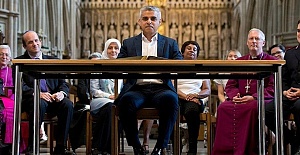 The candidates vying to be the next London mayor
The candidates vying to be the next London mayor Enfield Council commits to anti-racism and diversity pledge
Enfield Council commits to anti-racism and diversity pledge President Erdogan promised supporters his party would learn its lessons from the defeat
President Erdogan promised supporters his party would learn its lessons from the defeat Mayor of London and London Assembly elections
Mayor of London and London Assembly elections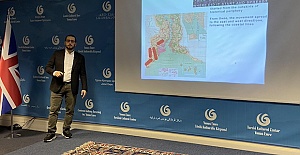 A Century of Urban Transformation, Istanbul’s Evolution
A Century of Urban Transformation, Istanbul’s Evolution Future Painters Exhibition at Tottenham Hotspur Stadium
Future Painters Exhibition at Tottenham Hotspur Stadium Models of Teaching International Journalism for Sustainable Development
Models of Teaching International Journalism for Sustainable Development UK and US scientists have been working on eclipse observations
UK and US scientists have been working on eclipse observations English Premier League leaders Arsenal will visit title contenders
English Premier League leaders Arsenal will visit title contenders Liverpool meet Atalanta and West Ham face Bayer Leverkusen
Liverpool meet Atalanta and West Ham face Bayer Leverkusen Arsenal face Bayern Munich and Manchester City play Real Madrid
Arsenal face Bayern Munich and Manchester City play Real Madrid UK Transfer deadline day, the transfer window closes tonight
UK Transfer deadline day, the transfer window closes tonight Petrol prices on UK forecourts hit 150p a litre
Petrol prices on UK forecourts hit 150p a litre Europe's travel strikes: Flight and train disruption you can expect in April
Europe's travel strikes: Flight and train disruption you can expect in April Enfield Council website achieves digital inclusion recognition
Enfield Council website achieves digital inclusion recognition Enfield Council’s Planning Enforcement team goes from strength to strength
Enfield Council’s Planning Enforcement team goes from strength to strength




